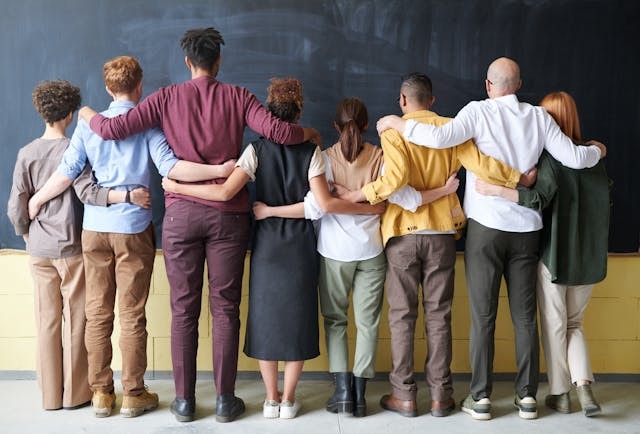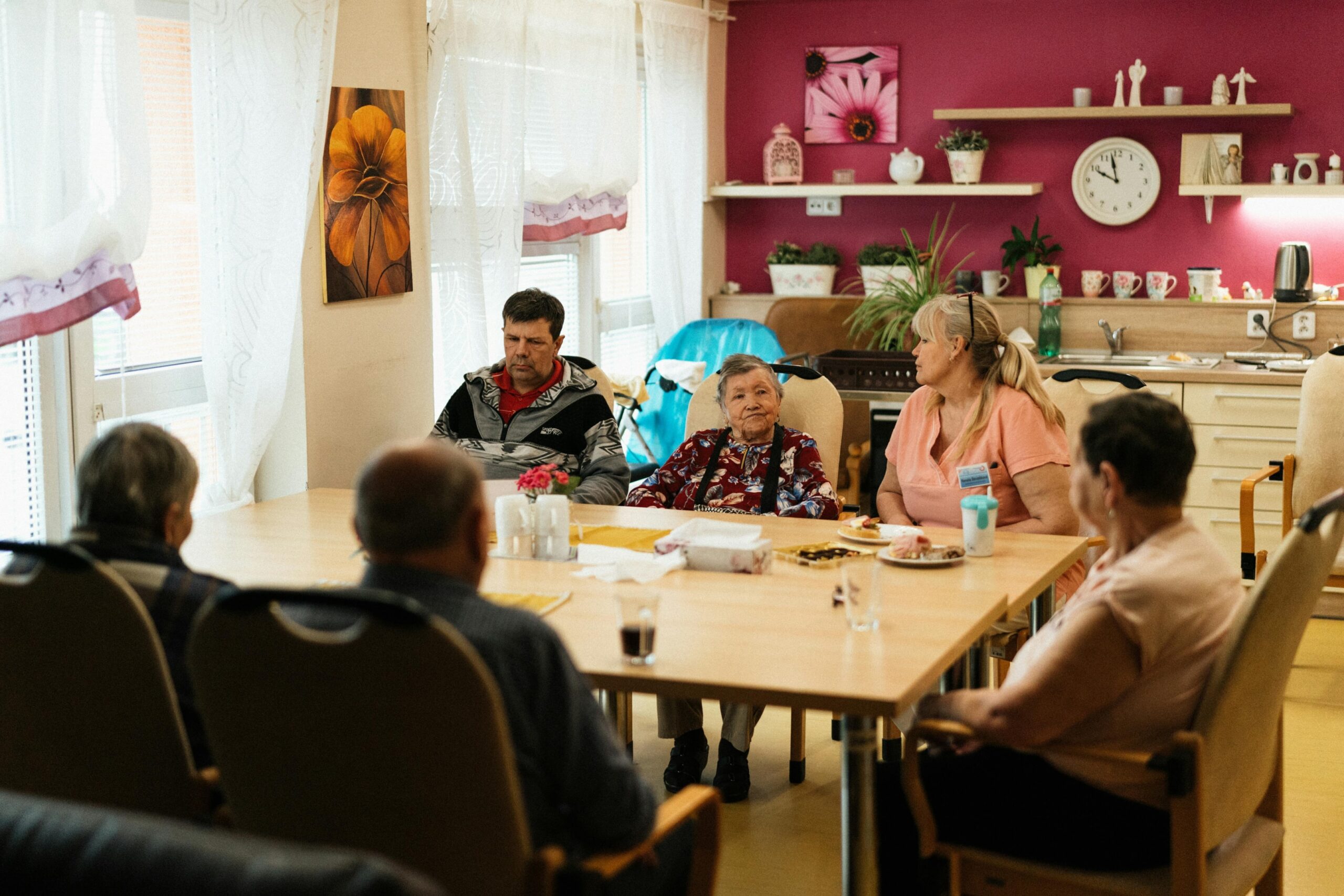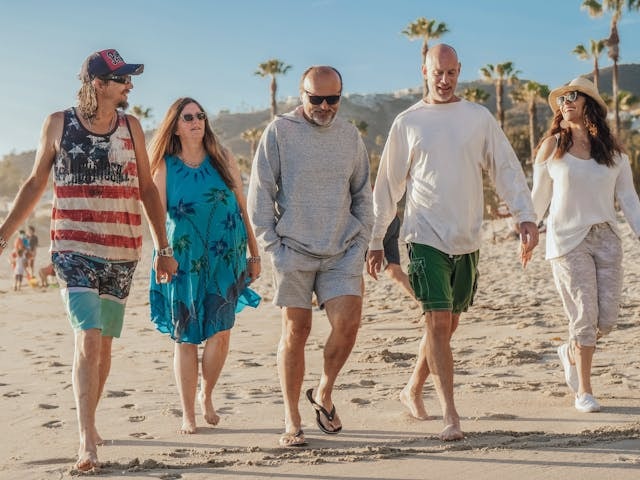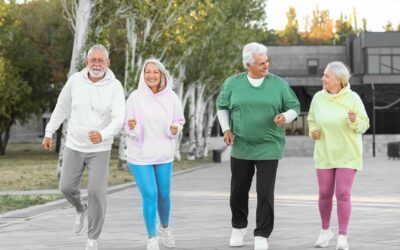Introduction
Are you looking for some ways on enhancing lives through assistance with social and community participation?
Navigating the world of the National Disability Insurance Scheme (NDIS) can be a bit of a maze, but understanding how to utilise your NDIS plan for increased social and community participation is a game-changer. Social and community activities are essential for enhancing your quality of life, building skills, and fostering a sense of belonging.
This guide will break down how the NDIS supports increased social and community participation, offering practical tips and real-life examples to help you make the most of your NDIS funding.
Understanding Social and Community Participation under the NDIS

What is Social and Community Participation?
Social and community participation refers to activities that allow individuals to engage with others and be part of the community. This can include anything from joining a book club or a netball team, attending art classes, or participating in community events.
Engaging in these and social and community participation activities and activities not only boosts your mental health and wellbeing but also helps you develop new skills and make new friends.
Why is it Important?
Participating in social group community activities can significantly improve your quality of life. It can help you build skills, boost your confidence, and create a sense of belonging and social community. According to a study by the Australian Institute of Health and Welfare, individuals who engage in social and community activities report higher levels of happiness and overall wellbeing.
The Role of NDIS in Supporting Social and Community Participation
How Does NDIS Support Community Participation?
The NDIS provides funding and supports to help people with disabilities participate in social and community activities. This funding can be used for a variety of purposes, including transportation to activities, enrolment fees for classes or sports, and support workers to assist you during these social and recreational activities.
Types of Supports Available

Core Supports
Core support budgets and supports your core support budget can cover assistance with daily living and participation in community activities. This can include personal care, transport to and from activities, and support workers to assist you during these activities.
For example, if you want to join a local netball team but need help getting there and participating, your core support budget can cover these costs.
Capacity Building Supports
Capacity building supports are designed to help you develop skills and independence over time. This is core support can include life skills training, peer support, and mentoring. For example, if you’re interested in learning a new skill like playing an instrument, capacity building is core supports budget can cover music classes.
Benefits of Social and Community Participation
Improved Mental Health and Wellbeing
Engaging in social and community activities can significantly boost your mental health. Participating in group activities like a craft class or a book club helps reduce feelings of isolation and promotes a sense of belonging. assistance with social and community participation can support people.
Enhanced Skills Development
By participating in various activities, you can develop new skills that enhance your independence and overall quality of life. For example, joining a sports coaching class can improve your physical activity levels and teach you teamwork.
Real-life Success Stories
Sarah’s Story
Sarah, who has a physical disability, always dreamed of joining a community choir. With the help of her NDIS plan, she was able to hire a support worker to assist her during rehearsals and performances. Not only did the support worker and Sarah find joy in singing, but she also made new friends and gained confidence in her abilities.
Understanding NDIS Plans Related to Social and Community Participation
Structuring Your NDIS Plan
When developing your NDIS plan, it’s essential to articulate your social and community goals clearly. Your local area coordinator (LAC) support coordinator can help you identify the supports you need to participate in these activities.
Make sure to include specific activities you’re interested in, such recreational activities such as horse riding, craft classes, or volunteering at a local café.
Tips for Articulating Your Goals
Be specific about what you want to achieve. For instance, instead of saying, “I want to be more social,” you could say, “I want to join a book club and attend meetings twice a month.” This clarity helps ensure your NDIS plan includes the necessary supports and funding.
Types of Supports Available for Social and Community Participation
Core Supports Budget
Your core supports budget can be used for a variety of core supports and activities, including transport to community events similar activities, assistance with personal care, and support workers to help you during activities.
Capacity Building Components
Capacity building supports focus on developing your skills and independence. This capacity building also can include life transition planning, individual skill development, and increased social and community participation activities.
Community Participation Funding
Community participation funding can be used for tuition fees, enrolment costs, and other expenses related to joining social & community activities.
This funding ensures you have the resources needed to participate fully in your chosen or increased social & community activities here.
Strategies for Maximising Social and Community Participation

Practical Tips for Participants
-
Set Clear Goals: Identify what you want to achieve through your community participation. Whether it’s making new friends, learning a new hobby, or improving your physical health, having clear goals will guide your planning.
-
Leverage Support Coordinators: Support coordinators can help you navigate the NDIS system and connect you with suitable activities and service providers.
-
Stay Informed: Regularly check for new community events and activities that align with your interests. Local councils and community centres often have listings of upcoming events.
Examples of Activities
-
Art Classes: Develop your creative skills and meet people with similar interests.
-
Sports Coaching: Improve your physical activity levels and learn teamwork.
-
Music Festivals: Enjoy live music and socialise with other attendees.
-
Volunteer Arrangements: Gain experience and give back to the community.
-
Recreational Activities: Participate in vacation activities, such as beach outings or hiking trips.
Overcoming Challenges
Common Challenges
Navigating the NDIS system and managing your supports can be challenging. Some common issues include understanding the rules, finding suitable support item and activities, and managing support item in your plan effectively.
Solutions and Resources
-
Attend Workshops: Participate in NDIS workshops to gain a better understanding of how the system works.
-
Seek Peer Support: Connect with other NDIS participants to share experiences and advice.
-
Use Online Tools: Various online resources can help you manage your NDIS plan and find suitable activities.
Success Stories
Emily’s Journey
Emily, a young woman with a cognitive disability, wanted to increase her social interactions and learn new skills. Through support category her NDIS plan, she joined a local art class, local cafe and a book club. The support from her support worker and the funding for class fees enabled her to participate fully. Emily has since made several new friends and discovered a passion for painting.
Tom’s Experience
Tom, who has a developmental disability, used his community participation funding to enrol in sports coaching and music classes. These activities not only helped Tom build new skills but also boosted his confidence and independence increased social himself.
His former support worker and coordinator played a crucial role in identifying these opportunities and ensuring they were included in his NDIS plan.
How Support Services Can Assist
Our Mission and Values
We are dedicated to empowering individuals with disabilities through personalised, high-quality support services. Our mission is to help support you achieve your goals and maximise your NDIS entitlements.
Services Offered
-
Support Coordination: Helping you navigate the NDIS system and connect with suitable activities.
-
Plan Management: Assisting with the financial aspects of your NDIS plan.
-
Direct Support Services: Providing personal care and assistance during community activities.
Client Testimonials
Our clients’ success stories highlight the positive impact of our services. For example, John credits our support coordination for helping him find the right providers and making the most of his NDIS funding.
Conclusion
Understanding your rights and benefits under the National Disability Insurance Act is essential for making the most of the NDIS. Engaging in social & community participation activities can significantly enhance your quality of life, build skills, and foster a sense of belonging. Remember, you are not alone in this journey. There are plenty of resources and support available to help you navigate the NDIS and achieve your goals. So, get out there, participate, and make the most of the opportunities available to you.


